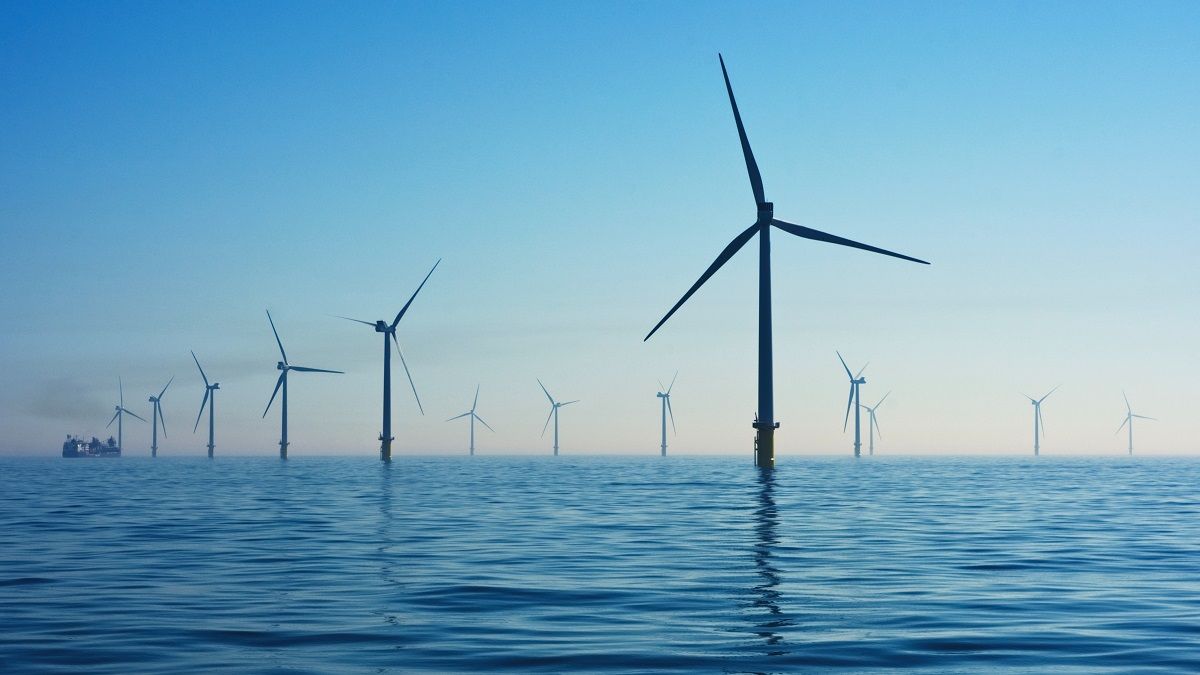The European Investment Bank (EIB) has concluded three financing agreements worth a total of €210m for the construction of windfarms in the Mediterranean.
The three floating windfarms will be located off the French coast. According to the European Commission, each project is based on a different innovative technology, and all of the floating wind turbines are anchored to the seabed by means of underwater cables.
This innovation means that the turbines can be installed further away from the coast in areas where wind exposure is optimal, and also limits the ecological footprint of the projects. These three technological demonstrators were initiated by ADEME and co-financed by the EIB.
Ambroise Fayolle, vice president of the EIB, said: “These three loans for the first floating offshore wind farms in France are fully in line with the EIB’s strategy of providing massive support for the development of renewable energy and the energy transition in Europe. As the European Union’s climate bank, our role is to promote and support innovations such as floating offshore wind turbines that provide technological solutions to effectively combat global warming.”
He added: “Through these high-quality projects in which leading public and private players join forces, the EIB is particularly proud to be participating in the development of a French and European industrial sector at the forefront of marine renewable energy.”
The first, and easternmost, project is being carried out by Parc Eolien Offshore de Provence Grand Large, a subsidiary of EDF Renouvelables, and Enbridge Eolien France 2 (EEF2), a subsidiary of Enbridge and CPP Investments. The EIB’s €50m loan contributes to the design, development, construction, commissioning, operation, maintenance and dismantling of a floating offshore wind project consisting of three Siemens Gamesa turbines with a total capacity of around 25 MW.
This floating offshore wind project, a technological first, is supported by InnovFin EDP facility NER 300, the European Regional Development Fund and the Southern Region. Under previous agreements signed in 2020 and 2021, the EIB is already working with these partners to finance offshore wind farms in the Normandy region in Fécamp (71 wind turbines with a capacity of 497 MW) and Courseulles-sur-Mer (64 wind turbines with a capacity of 448 MW).
Eolmed, the second project, is developed by independent electricity producer Qair and will be installed more than 18km off the coast of Narbonne in the Aude department in the Occitanie region. It is being financed to the tune of €85m by the EIB, with a guarantee by the European Commission’s European Fund for Strategic Investments (EFSI), and construction will start in the autumn of 2022 for commissioning in mid-2024.
Finally, the westernmost project is the Eoliennes Flottantes du Golfe du Lion project. It is led by its two co-shareholders: Ocean Winds (a joint venture between EDP Renewables and Engie) and Banque des Territoires (part of the Caisse des Dépôts Group, or CDC).
The news comes just under a year from when the EIB announced that it would supply €10.2bn in new financing for investments to accelerate the green energy transition; expand sustainable transport; and improve health, education, social housing, and urban development.
The EIB has not been reticent when it comes to investing in technologies to promote sustainability. In January 2020, it was one of the three pillars behind the European Commission’s plan to mobilise €1trn to move the bloc towards climate neutrality by 2050. Under that plan, the EIB was to provide a loan facility to mobilise between €25bn and €30bn in investments.







